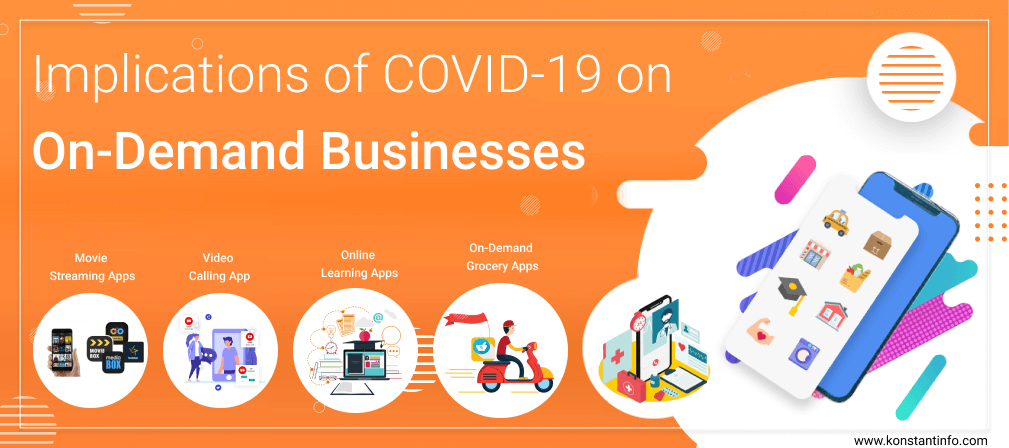
No one knows what is going on right now. The global economy is facing unprecedented challenges and has been confronting never before the situation. The need of the hour is to be agile, nimble, flexible and always looking for newer ways of working and engaging.
For most of the young graduates, students seeking employment, SME’s, start-ups – the path to their next prospective career will be circuitous. They are bound to imagine a divergent set of possible selves and futures.
Marketers and Businesses have started piloting a broad range of interrelated issues that span from keeping their employees and customers safe, trying to reorient their operations, shoring up liquidity and navigating complicated government support programs.
Crisis management and response: Existing business entities were never prepared and most of them are still not capable of handling the fast-moving and unknown variables of an outbreak like COVID-19.
What should be done?
Workforce: Extend support to your employees who are working at remote locations.
What should be done?
Operations and supply chain: Mitigating supply chain distributions
It is difficult to measure the intensity, repercussion of this babbling pandemic, but global businesses can begin to mitigate supply chain distributions.
What should be done?
Identifying alternatives to supply chain, activating pre-approved supply chain scenarios, adapting allocations to customers and pricing strategies.
Finance and liquidity: Banking, finance, insurance companies often watch how companies plan for and respond to events like the COVID-19 pandemic.
What should be done?
Consider and analyze the disclosures related to risks and uncertainties about current and future impact on liquidity and capital resources.
Tax, trade and regulatory: It requires an understanding of tax and regulatory systems, broader economic, political and societal context you operate in, to make informed and compliant decisions that drive your operations forward.
What should be done?
Strategy and brand: Companies are moving ahead with precision from reacting to mitigating the impact of the outbreak.
What should be done?
Microsoft, one of the largest organizations announced to be supportive towards their hourly wages and daily workers who have made the concept of reducing the presence of “individuals” at work, who work for their vendors and staff their cafes, drive their shuttles and support their on-site tech and audio-visual needs.
Microsoft has partnered with The Coca Cola Company, which will apply the power of Azure, Dynamics 365 and Microsoft 365 to transform employee and customer engagement.
Amazon, Expedia, Twitter, Facebook, Starbucks, Google, Salesforce have all started following a similar suite following Microsoft and have committed that subcontracted and hourly workers will not be deprived of their regular wages.
Much has changed in the economy. It is for us to learn and reconcile to do things differently and to adapt to unprecedented circumstances.
On-Demand Grocery Apps are at verge of being at inflection point due to COVID-19 crisis. With people being instructed to buy only essential items, large structural beneficiaries like Amazon Pantry, Amazon Go, Instacart, Grofers, Big Basket, Big Bazaar (India Based) have accelerated the secular shift to online grocery shopping. Respondents who buy groceries online have been continually increasing. Innovators have developed simple computer programs that tell them when Amazon Fresh or whole food delivery slot opens up. Coronavirus disease could be a short-term issue but it has created a huge increase in awareness for value, ease, and convenience of online grocery shopping (which would definitely last a long time).
Movie-streaming Apps like Netflix have an edge over the competition as COVID-19 has people looking for new content to uplift their moods. As rival cable operators face production delays in an attempt to catch up, Netflix has years of original content on its service thus accelerating the type of streaming services pioneered by Netflix.
Gauging the circumstances, online learning apps have created responsive systems according to the needs of online learners and students who are missing their regular school classes. Archiving the benefits of elite coaching institutions, no kid is far behind and gaining the advantage of online learning with inclusive mediums.
Online Yoga and Aerobic sessions from Gym experts, business and fun parties on video calling apps like Zoom, Facebook Messenger and WhatsApp messenger are common place.
Corona Warriors, self-help experts, Government agents are always on duty during times of crisis. This creates and necessitates the need to have on-demand doctor apps.
Although there is a need to have a professional crisis management plan to deal with unexpected crisis scenarios like COVID-19, which should address concerns of stakeholders at every level, safeguard the brand reputation, finance and accounts management and all legal issues (that might trigger on the spot).
Management and marketers need to be upright and proactive to set the perfect stage for their business like On-demand Grocery Apps, On-demand Doctor Apps, Video Calling App, Movie Streaming Apps, Online Learning Apps etc. They need to put their employee well-being above everything else, they need to be prompt/transparent and clear with their communication, they need to keep their expenses in check and backup all fiscal deficits, curate all the broken links in the supply chain, risk assessment and preventive actions must be part of unforeseen challenges and potential liabilities like customer-supplier contract disputes due to economic impacts or supply disruptions. Send your inquiries if you need suggestions to create an app for your potential business.



Neeti Kotia is a technology journalist who seeks to analyze the advancements and developments in technology that affect our everyday lives. Her articles primarily focus upon the business, social, cultural, and entertainment side of the technology sector.
Or send us an email at: [email protected]